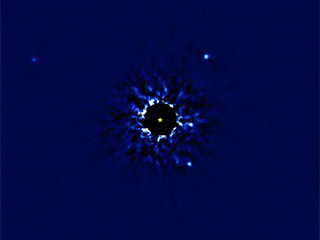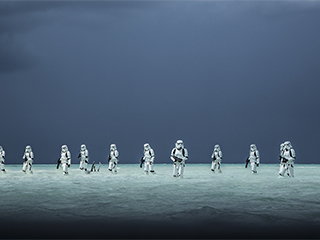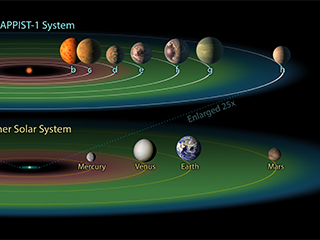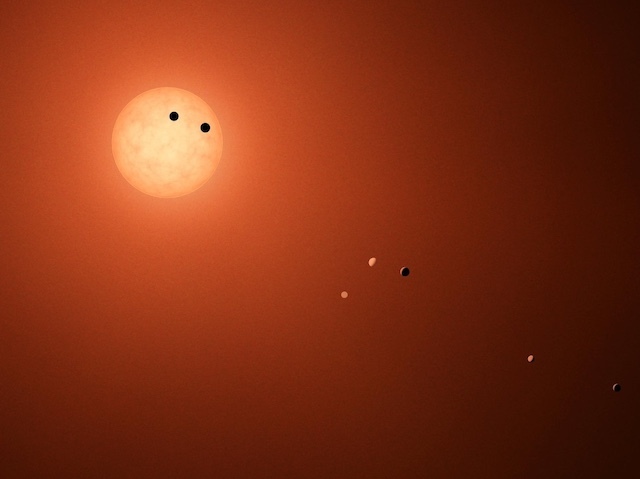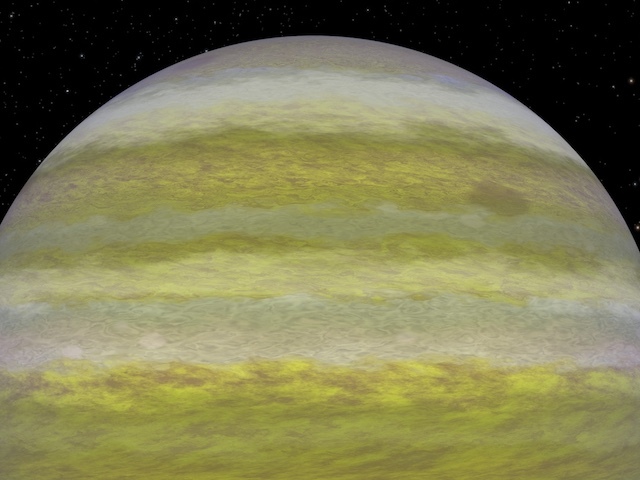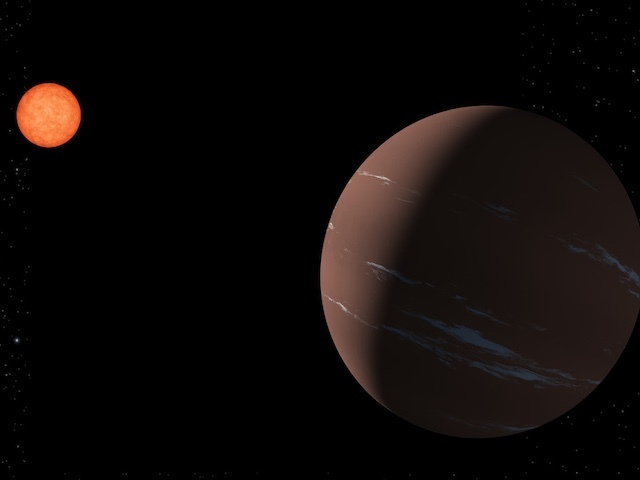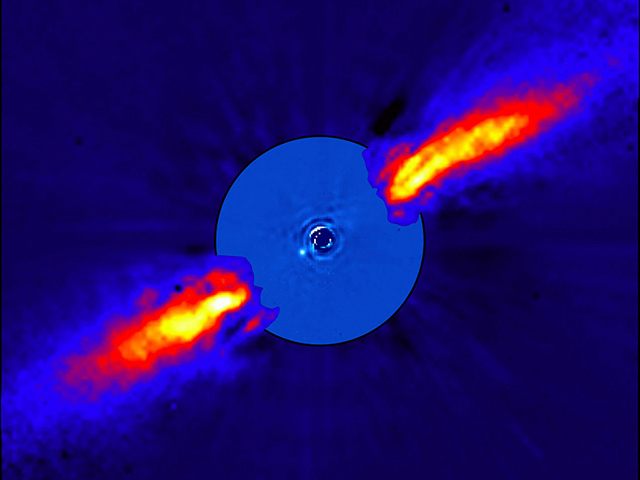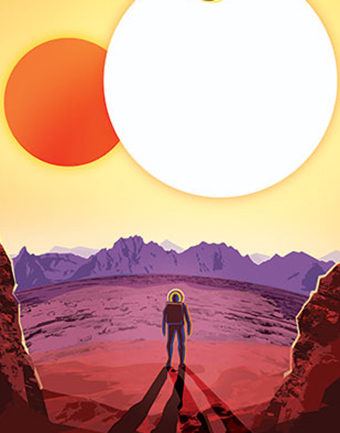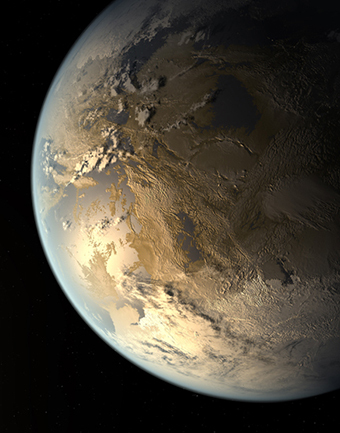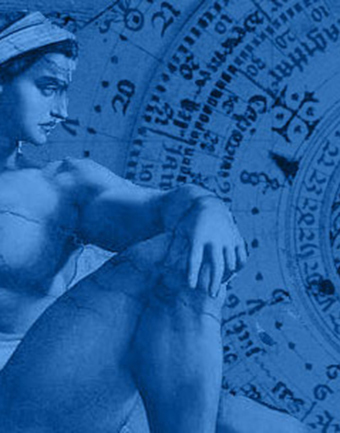News | March 28, 2017
NASA announces astronomy and astrophysics fellows for 2017
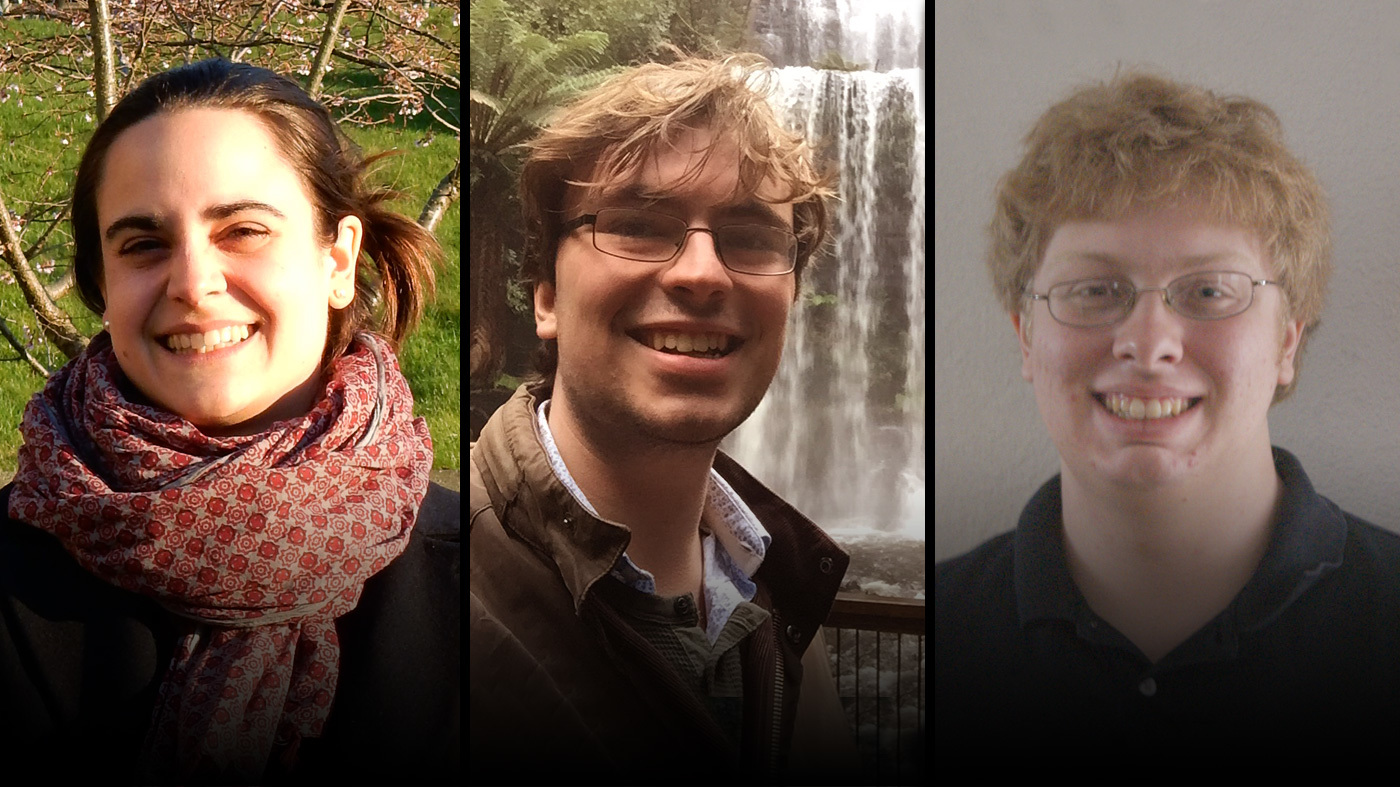
The 2017 Sagan Fellows are, from left: Raphaelle Haywood, Harvard College Observatory, Cambridge, Massachusetts; Benjamin Pope, New York University; Andrew Vanderburg, University of Texas, Austin. Credit: NASA/JPL-Caltech
NASA has selected 28 fellows for its prestigious Einstein, Hubble and Sagan fellowships. Each post-doctoral fellowship provides three years of support to awardees to pursue independent research in astronomy and astrophysics. The new fellows will begin their programs in the fall of 2017 at a host university or research center of their choosing in the United States.
“We are thrilled to have some of the most exciting young scientists in the world to help us explore the mysteries of the cosmos,” said Paul Hertz, Astrophysics Division director at NASA Headquarters, Washington. “We look forward to all the great science they will do in the next three years during their fellowships.”
Participants in the Einstein fellows program conduct research broadly related to the mission of NASA's Physics of the Cosmos (PCOS) program, which aims to expand our knowledge of the origin, evolution and fate of the universe. The PCOS program consists of a suite of operating science missions and possible future missions that focus on specific aspects of these questions.
"We are looking forward to welcoming this talented group of young scientists as the incoming Einstein Fellows, and to learning more about their work," said Belinda Wilkes, Director of the Chandra X-ray Center at the Smithsonian Astrophysical Observatory in Cambridge, Massachusetts, which manages the Einstein Fellows program for NASA. "Their research is diverse, covering the full range of PCOS science, and promises to significantly expand and advance the astrophysics research being carried out by NASA and its world-class science missions."
The eight new Einstein Fellows are listed below in alphabetical order with their host institutions:
- Vivienne Baldassare, Yale University
- Jennifer Barnes, Undecided
- Rahul Kannan, Smithsonian Astrophysical Observatory
- Philip Mocz, Princeton University
- Alexander Philippov, University of California, Berkeley
- Anna Rosen, Harvard University
- Zachary Slepian, Lawrence Berkeley National Laboratory
- Krista Smith, Kavli Institute for Particle Astrophysics and Cosmology
Participants in the Hubble Fellowship program conduct research broadly related to the mission of NASA's Cosmic Origins (COR) program, which aims to examine the origins of galaxies, stars and planetary systems, and the evolution of these structures with cosmic time. The COR program consists of a suite of operating science missions and possible future missions that focus on specific aspects of these questions.
"Congratulations to all of the new Hubble Fellows. It's an impressive class, and I have no doubt that they will continue the rich tradition of being leaders in the field of astronomy and astrophysics. As a former fellow and director of the Space Telescope Science Institute (STScI) in Baltimore, Maryland, where these fellowships originated back in the early 1990s, it is a pleasure to sign their award letters and welcome them as new fellows," said Ken Sembach. "They now have a rare, wonderful opportunity to experience scientific freedom and expand their scientific horizons on a path of their choosing. I wish them all the best and eagerly look forward to their accomplishments."
Each year, the current Hubble Fellows convene for a three-day symposium to present results of their recent research and to meet with other Hubble Fellows and the scientific and administrative staff who manage the program for NASA. The 2017 symposium was held in Baltimore on March 13-15.
The 17 new Hubble Fellows are listed below in alphabetical order with their host institutions:
- Rachael Beaton, Princeton University
- Ivan Cabrera Ziri Castro, Harvard College Observatory
- Ena Choi, Columbia University
- Susan Clark, Institute for Advanced Study
- Wen-fai Fong, University of Arizona
- Katheryn Decker French, Carnegie Observatories
- Anne Jaskot, University of Massachusetts
- Alexander Ji, Carnegie Observatories
- Sebastiaan Krijt, University of Chicago
- Sarah Loebman, University of California, Davis
- Brett McGuire, National Radio Astronomy Observatory
- Evan Schneider, Princeton University
- Jordan Stone, University of Arizona
- Johanna Teske, Carnegie Institution
- Siyao Xu, University of Wisconsin – Madison
- Ke Zhang, University of Michigan
- George Zhou, Smithsonian Astrophysical Observatory
The Sagan Fellowship supports scientists whose research is aligned with NASA's Exoplanet Exploration program. The primary goal of this program is to discover and characterize planetary systems and Earth-like planets around other stars. The current and past Sagan Fellows will meet in Pasadena, California, at the Sagan Fellows Symposium later this year to take advantage of networking opportunities and update their peers on their research efforts.
"The field of exoplanets continues to explode with new discoveries and advancements each day. The Sagan fellows will contribute to these advancements by pushing the boundaries with their research." said Sagan Program Scientist Dawn Gelino, deputy director for the NASA Exoplanet Science Institute at Caltech in Pasadena.
The three 2017 Sagan Fellows are listed below with their host institutions:
- Raphaelle Haywood, Harvard College Observatory
- Benjamin Pope, New York University
- Andrew Vanderburg, University of Texas, Austin
The Chandra X-ray Center administers the Einstein Fellowships for NASA. NASA's Marshall Space Flight Center in Huntsville, Alabama, manages the Chandra program for NASA's Science Mission Directorate in Washington. The Smithsonian Astrophysical Observatory controls Chandra's science and flight operations. STScI administers the Hubble Fellowships for NASA. STScI is the science operations center for the Hubble Space Telescope and the science and mission operations center for the James Webb Space Telescope, scheduled for launch in 2018. STScI is operated for NASA by the Association of Universities for Research in Astronomy, in Washington. The NASA Exoplanet Science Institute, which is operated at Caltech in coordination with the Jet Propulsion Laboratory, administers the Sagan Fellowship Program for NASA.
A full list of the 2017 fellows and other information about these programs is available at:
http://cxc.harvard.edu/fellows/fellowslist.html
http://www.stsci.edu/institute/smo/fellowships/hubble/fellows-list
http://nexsci.caltech.edu/sagan/2017postdocRecipients.shtml
For more information about NASA's Astrophysics Division, visit:
http://science.nasa.gov/astrophysics
Media contacts:
Felicia Chou
NASA Headquarters, Washington
202-358-0257
felicia.chou@nasa.gov
Megan Watzke
Chandra X-ray Center, Cambridge, Massachusetts
617-496-7998
mwatzke@cfa.harvard.edu
Cheryl Gundy
Space Telescope Science Institute, Baltimore, Maryland
410-338-4707
gundy@stsci.edu
Elizabeth Landau
Jet Propulsion Laboratory, Pasadena, California
818-354-6425
elizabeth.Landau@jpl.nasa.gov

